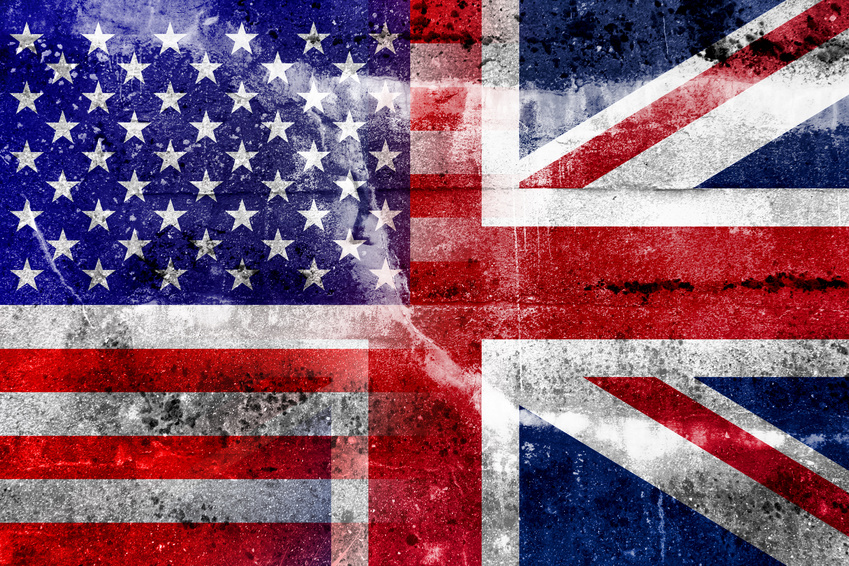9 szó, ami teljesen mást jelent a brit és az amerikai angolban. Nézzük!
Saloon
When many of us in the US hear the word saloon we think of an old-timey bar with large swinging doors and ragtime music playing in the background. But in the UK, if you ask to be taken to a saloon, you might be guided to what we in the States refer to as a sedan car that seats four or five people. If this outcome is disappointing, remember it’s the perfect opportunity to ask for a ride to the pub.
Pants
Proceed with caution when disclosing any information regarding your pants to a Brit because in British English, the word pants means “underpants.” If you must discuss the heavenly breathability or superior fabric grade of your new slacks, consider using the term trousers to ensure it translates accurately.
Jumper
In the US, the word jumper refers to a person or thing that jumps. But in the UK, jumper has the softer, cozier meaning of “sweater.” This sense of the word can be traced back to the now-obsolete definition of jump as a short coat worn by men in 1600 and 1700s.

Muppet
Jim Henson is credited with coining this term in the US to refer to his beloved part-puppet, part-marionette creations, but in Britain the word muppet has taken on a colloquial sense to refer to an incompetent or ineffective person–an idiot. No doubt Ms. Piggy would take umbrage at this less-than-flattering derivation.
Biscuit
When many of us think of biscuits, we think of soft, flaky baked buns slathered in butter or gravy. But US tastebuds be warned: in British English, the word biscuit refers to what we might call a cookie. The word derives from the Latin biscoctum panem which means “twice-baked bread.”
Agony aunt
The term agony aunt, may conjure a family member who pinches her relatives’ cheeks a little too hard, squeezes them a little too tight, and gossips about their marriage prospects (or lack thereof) a little too fervently. But in the UK, this term refers to an editor of what is called an agony column, or what US readers might know as an advice column. The writers of Dear Abby and Ask Ann Landers are examples of agony aunts.
Braces
For many of us, the word braces conjures middle-school memories of metal-clad mouths and trips to the orthodontist. For the Brits, braces can also refer to suspenders, as in straps that hold up trousers. Both of these meanings can be traced back to the Old French word brace or braz, meaning “arms,” and its verb form bracier meaning “to embrace or to render firmly or steady by tensing.”
Boot and bonnet
Boots and bonnets are not items that we commonly associate with cars, but in the UK, boot refers to a caSr’s trunk, and bonnet refers to its hood. Be it with boots, bonnets, or hoods, it’s clear that people like to dress their cars in clothing terminology on both sides of the pond.
Pudding
If you want what we in the States know as pudding–a soft, thick gelatinous treat–while traveling in Great Britain, you might have to get more specific with your terminology. Across the pond, pudding can refer to any sort of dessert course or to a stuffed entrail or sausage. This broader meaning explains the rise of everyone’s favorite pudding-related proverb, The proof is in the pudding, or as it was originally phrased, All the proof of the pudding is in the eating.
source: dictionary.com
Do you remember the British-American pairs from the text? Can you make pairs?
1. pants |
a. jumper |
2. sweater |
b. braces |
3. cookie |
c. trousers |
4. suspenders |
d. biscuit |
5. trunk |
e. boot |
Key:
1. c.
2. a.
3. d.
4. b.
5. e.
Vocabulary
|
swinging doors |
lengőajtó |
|
in the background |
a háttérben |
|
outcome |
kimenetel |
|
disappointing |
kiábrándító |
|
to proceed |
haladni |
|
with caution |
óvatosan |
|
to disclose |
elárulni, felfedni |
|
underpants |
alsónadrág |
|
heavenly |
mennyei |
|
breathability |
képes “lélegezni” |
|
slacks |
nadrág |
|
accurately |
pontosan |
|
cozy |
meghitt |
|
obsolete |
elavult |
|
to coin |
szót alkotni |
|
incompetent |
inkompetens, hozzá nem értő |
|
ineffective |
nem hatékony |
|
to take umbrage |
megsértődni, megneheztelni |
|
flattering |
hízelgő |
|
derivation |
származtatás |
|
flaky |
leveles (tészta) |
|
bun |
zsömle, pogácsa |
|
to slather |
megkenni |
|
tastebud |
ízlelőbimbó |
|
to derive |
eredni, származni |
|
agony |
agónia, gyötrődés |
|
to pinch |
megcsipkedni |
|
to gossip |
pletykálni |
|
fervently |
hevesen |
|
braces, suspenders |
nadrágtartó |
|
to conjure |
felidézni |
|
to trace back |
viszzevezetni |
|
firmly |
erősen, szilárdan |
|
on both sides of the pond |
az óceán mindkét oldalán |
|
across the pond |
az óceán másik oldalán, Nagy-Britanniában |
|
stuffed |
töltött |
|
entrails |
belek |
|
All the proof of the pudding is in the eating. |
A puding próbája az evés. |



